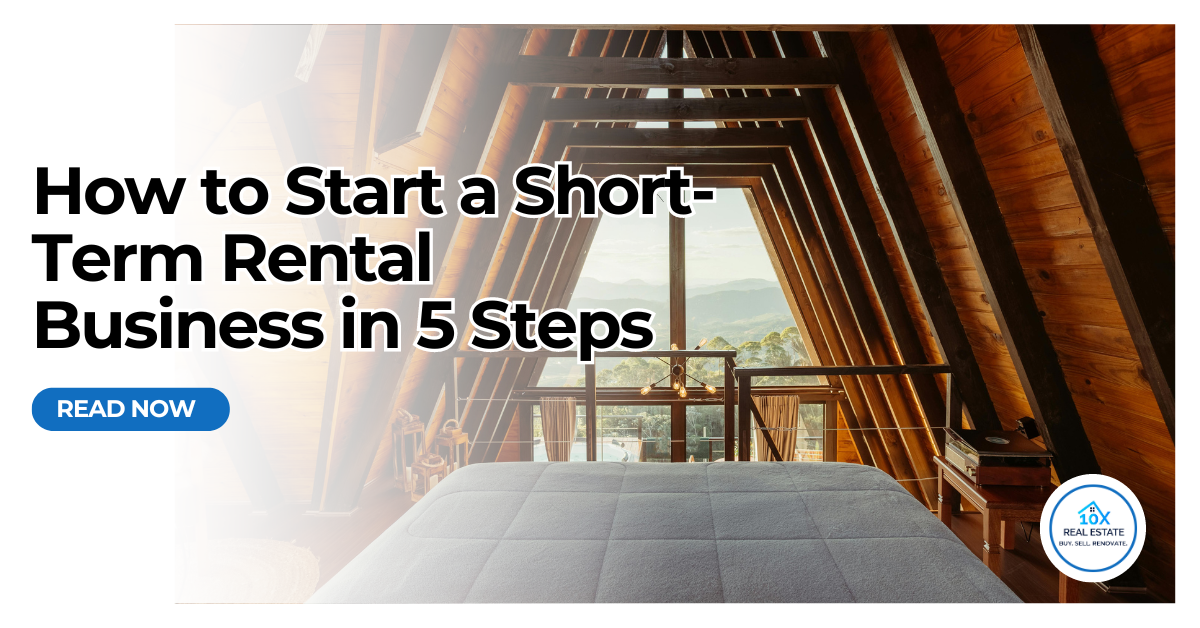Short-term rentals, such as those listed on platforms like Airbnb and VRBO, can be a lucrative investment, but they come with unique risks. As a property owner, it’s essential to understand the type of insurance you need to protect yourself and your investment. Short-term rental properties face different exposures compared to long-term rentals or primary residences, which means your standard homeowner’s insurance policy may not offer the coverage you require. Here’s a breakdown of the key types of insurance you should consider when operating a short-term rental.
1. Short-Term Rental Insurance
This specialized insurance is designed specifically for properties used as short-term rentals. It typically covers a wide range of potential issues, including:
- Property damage caused by guests.
- Liability coverage for accidents or injuries that occur on the property.
- Lost income protection if your property becomes temporarily uninhabitable due to a covered event, such as fire or flooding.
Some providers may offer this as a stand-alone policy, while others may allow you to add a short-term rental endorsement to your homeowner’s policy.
2. Homeowner’s Insurance Rider for Short-Term Rentals
If you already have homeowner’s insurance, you might be able to add a rider or endorsement to your existing policy for short-term rental activities. However, this may provide limited coverage compared to a full short-term rental policy and is generally more suited for those renting their property infrequently. Be sure to discuss the extent of this coverage with your insurance agent, as it often won’t cover things like intentional damage by guests or lost income.
3. Landlord Insurance
While traditional landlord insurance is designed for long-term rentals, some policies can be extended to cover short-term rental scenarios. It generally covers:
- Property damage caused by events like fires or natural disasters.
- Legal and medical expenses if a guest is injured on the property.
- Vandalism or theft by guests.
However, landlord insurance policies may not offer protection if you’re frequently renting to short-term guests, making it crucial to understand the limitations before opting for this type of coverage.
4. Commercial Property Insurance
If you treat your short-term rental property as a business and rent it out consistently, you may need commercial property insurance. This type of insurance is typically necessary for individuals who have multiple properties or operate their rentals like a full-scale business. It can cover:
- Property damage and loss.
- General liability.
- Business interruption insurance, which covers lost income during times when your property can’t be rented.
This policy provides robust coverage, but it may be more expensive compared to personal policies.
5. Liability Insurance
Accidents can happen, and as a short-term rental host, you could be held responsible if a guest is injured on your property. Liability insurance covers legal fees, medical expenses, and settlement costs associated with these incidents. Many short-term rental insurance policies include liability protection, but you may want to consider an umbrella insurance policy for additional coverage. This is especially important if you host large numbers of guests or rent high-end properties.
6. Host Protection Insurance by Platforms
Some rental platforms, like Airbnb, offer their own form of host protection insurance. Airbnb, for instance, provides Host Guarantee and Host Protection Insurance, which can cover:
- Up to $1 million in property damage.
- Liability for guest injuries.
While this may offer some peace of mind, relying solely on the platform’s insurance can leave gaps in your coverage. Always read the fine print, as these policies may not cover issues like mold, bedbugs, or intentional guest damage.
7. Business Income Insurance
If a natural disaster or other covered event makes your rental uninhabitable, business income insurance can reimburse you for lost income. This type of insurance can be vital if you depend on your short-term rental income to meet mortgage payments or cover other essential expenses.
8. Loss of Use Coverage
If your rental becomes temporarily unusable due to a covered event, loss of use coverage can cover the additional living expenses for you or your tenants. While this coverage is more common in homeowner’s insurance policies, it can be extended to short-term rentals, ensuring you aren’t left without a source of income during property repairs.
Final Thoughts
Insurance is a critical consideration for anyone operating a short-term rental. Without the right coverage, you could face financial ruin due to property damage, liability issues, or lost rental income. It’s essential to assess your needs based on the frequency of your rentals, the type of property, and the level of risk you’re willing to accept.
Be proactive—discuss your situation with an insurance agent who specializes in short-term rental policies. With the right insurance, you can enjoy the benefits of your short-term rental business with peace of mind, knowing you’re protected against the unexpected.




